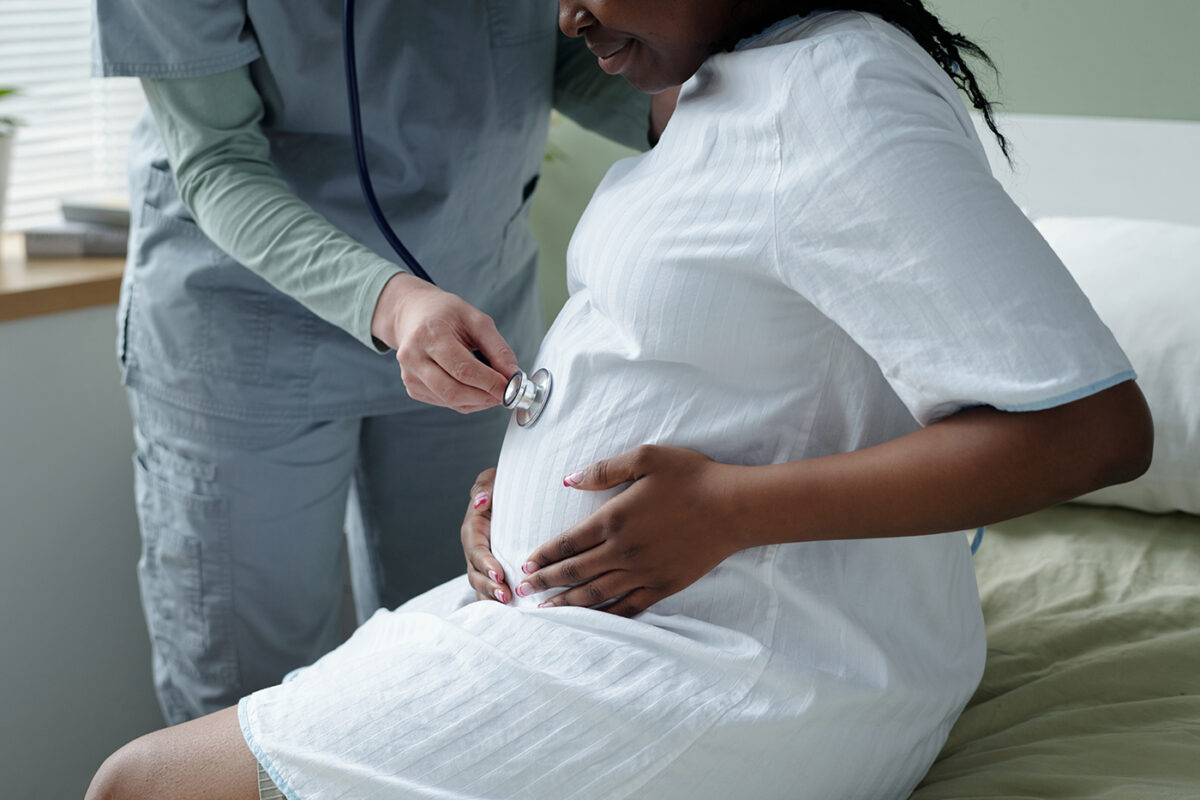
Author
Elizabeth (Izzy) Montgomery, MPA
Policy Analyst
Contact
ACHI Communications
501-526-2244
jlyon@achi.net
Ninety-two percent of pregnancy-related deaths that occurred in Arkansas between 2018 and 2020 were likely preventable, according to the 2023 Arkansas Maternal Mortality Review Committee (AMMRC) Legislative Report, published in December.
The report defines a pregnancy-related death as “the death of a woman during pregnancy or within one year of the end of pregnancy from a pregnancy complication, a chain of events initiated by pregnancy, or the aggravation of an unrelated condition by the physiologic effects of pregnancy.”
A pregnancy-related death is distinct from a pregnancy-associated death, which the report defines as the death of a woman while pregnant or within one year of the end of pregnancy, regardless of the cause.”
Of the 88 pregnancy-associated deaths examined in the report, 38, or 43%, were determined to be pregnancy-related deaths. The report states that 35 of those pregnancy-related deaths were potentially preventable, meaning that “there was at least some chance of the death being averted by one or more reasonable changes to patient, family, provider, facility, system and/or contributing factors.”
Other key findings include:
Race and Ethnicity
- Black non-Hispanic women and Asian-American/Pacific Islander non-Hispanic women were disproportionately impacted by both pregnancy-associated deaths and pregnancy-related deaths.
- Black non-Hispanic women were 2.3 times more likely to experience pregnancy-associated deaths than White non-Hispanic women.
- Black non-Hispanic women were 1.8 times more likely to experience pregnancy-related deaths than White non-Hispanic women.
Age
- The risk of pregnancy-associated death increased with age, with women 35 and older having the highest mortality rate (3.9 times the mortality rate of women younger than 25).
Timing of Death
- Most (68%) pregnancy-related deaths occurred during pregnancy or within six weeks of pregnancy, while most (69%) pregnancy-associated but not pregnancy-related deaths occurred beyond six weeks of pregnancy.
Source of Payment
- Among pregnancy-associated but not pregnancy-related deaths, Medicaid was the source of payment for 60% of live births, with the remaining 40% paid for by private insurance.
- Among pregnancy-related deaths, Medicaid was the source of payment for 46% of live births, followed by private insurance (42%) and self-pay (12%).
Education
- While women of all education levels were affected by pregnancy-related deaths, women with a high school education or less had a higher pregnancy-related mortality rate (43.8 deaths per 100,000 live births) compared to women with more than a high school education (27.9 deaths per 100,000 live births).
Geography
- Of the state’s five public health regions (Northwest, Northeast, Central, Southwest, and Southeast), pregnancy-related deaths were the highest in Southwest Arkansas (46.6 deaths per 100,000 live births), followed by Southeast Arkansas (46.2 deaths per 100,000 live births) and Northwest Arkansas (42.3 deaths per 100,000).
Causes of Death
- Among pregnancy-related deaths, the top underlying causes of death included cardiomyopathy, or disorders that affect the heart muscle (nine deaths), cardiovascular conditions (six deaths), hypertensive disorders of pregnancy (five deaths), infection (five deaths), and hemorrhage (four deaths).
Recommendations from the report include:
- Increasing awareness among patients and families of pregnant women of urgent warning signs and symptoms during pregnancy and in the year after delivery and the importance of seeking immediate medical attention.
- Enhancing providers’ understanding of treatment practices and recognition of the importance of screening for chronic conditions, such as cardiovascular diseases, that can worsen during pregnancy.
- Training all care team members on urgent maternal warning signs and establishing a clear chain of command for escalating concerns.
- Increasing access to comprehensive health services during pregnancy, in the year after pregnancy, and throughout the preconception and interpregnancy periods to facilitate continuity of care, implement effective care transitions, promote safe birth spacing, and improve the lifelong health of women.
- Extending Arkansas Medicaid maternal coverage from 60 days to one year postpartum.
The work of the AMMRC is critical in understanding why Arkansas has the highest maternal mortality rate in the nation, with even higher rates among minority populations. Making Arkansas a safer place to have a child requires addressing risks throughout the birthing journey. ACHI’s Health Policy Board has expressed support for extending postpartum Medicaid coverage to 12 months and coverage of doula services. Doulas provide emotional, physical, and other supports to pregnant or recently pregnant women.
Established by the Arkansas General Assembly in 2019, the AMMRC is charged with reviewing maternal deaths occurring during pregnancy or within one year of the end of pregnancy to investigate causes of death and contributing factors and to make recommendations to prevent such deaths in the future.






